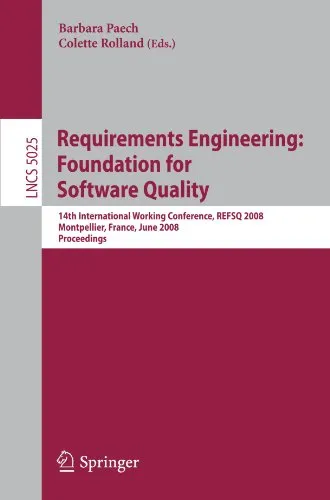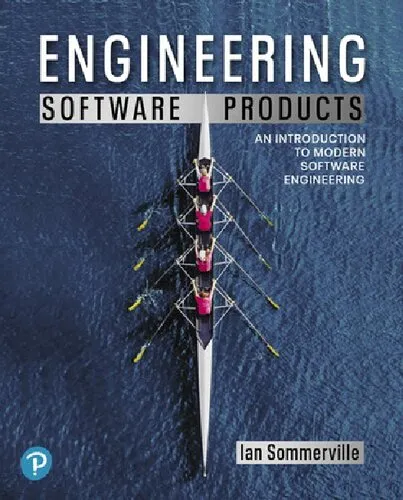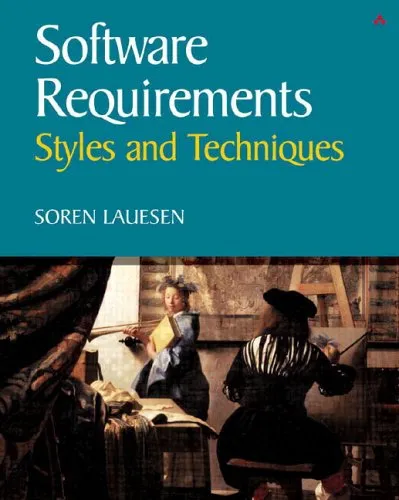Requirements Engineering: Foundation for Software Quality: 14th International Working Conference, REFSQ 2008 Montpellier, France, June 16-17, 2008 Proceedings
4.0
Reviews from our users

You Can Ask your questions from this book's AI after Login
Each download or ask from book AI costs 2 points. To earn more free points, please visit the Points Guide Page and complete some valuable actions.کتاب های مرتبط:
Introduction to "Requirements Engineering: Foundation for Software Quality"
The book “Requirements Engineering: Foundation for Software Quality” is a comprehensive collection of scholarly contributions presented at the 14th International Working Conference, REFSQ 2008 held in Montpellier, France. This volume encapsulates the advancements, discussions, and practical insights into the domain of requirements engineering (RE), with a special focus on improving the quality and foundation of software systems.
This book serves as a robust foundation to help researchers, practitioners, and students understand the complexities of eliciting, expressing, and managing software requirements within the software development lifecycle. By documenting and analyzing the discussions and findings shared during the conference, the book aims to drive innovation, enhance industry best practices, and address the multifaceted challenges associated with requirements engineering.
If you are a professional or an academic working in the field of software engineering, this book becomes an essential resource not only for gaining theoretical knowledge but also for learning actionable methodologies and tools. It emphasizes the importance of effective requirement gathering and management practices for ensuring software quality and successful project outcomes.
Detailed Summary
This book is a diverse and cutting-edge compendium structured around the findings of the REFSQ 2008 conference. It explores a variety of key themes within requirements engineering, such as:
- Techniques for eliciting, validating, and managing requirements.
- New approaches to ensure the alignment of stakeholder expectations and project realities.
- Frameworks and methodologies that integrate requirements engineering with software design and development.
- Interdisciplinary approaches connecting requirements engineering to business processes and user-centered design.
The 14th REFSQ conference themed itself around quality-driven requirements engineering and aimed to fill the existing gaps in practice. This collection includes technical papers, case studies, and plenary reports, organized to maximize knowledge transfer from theory to practice.
Key Takeaways
- Understanding the fundamental principles of requirements engineering and their impact on overall software quality.
- Insights into overcoming challenges associated with gathering, documenting, and implementing stakeholder requirements effectively.
- Learning about interdisciplinary methods that connect business objectives to technical engineering practices.
- Advances in tools and techniques that reduce errors in requirement specifications and facilitate continuous communication among stakeholders.
Famous Quotes from the Book
"Requirements are not just a phase in software development but a foundation upon which the entire structure of a project is built."
"Success in software projects is often determined by how well stakeholders' needs are transformed into actionable and achievable goals."
Why This Book Matters
Requirements engineering is at the heart of software development, influencing every phase of the lifecycle from planning to deployment. This book plays a critical role in highlighting the importance of effective requirements management, which is notoriously difficult yet extremely rewarding when done correctly.
The significance of this book lies in its detailed exploration of both the theoretical and applied facets of RE, designed to address common issues such as communication breakdowns, scope creep, and mismatched expectations. By emphasizing quality-driven methodologies, the book introduces practices that drastically reduce project risks while improving overall outcomes.
It is not merely a collection of ideas but rather a reliable reference that has the potential to elevate the quality of any software project. Whether you are navigating through a complex enterprise-grade system or a smaller-scale project, this book's insights can guide you toward achieving robust, requirement-driven development strategies.
Free Direct Download
You Can Download this book after Login
Accessing books through legal platforms and public libraries not only supports the rights of authors and publishers but also contributes to the sustainability of reading culture. Before downloading, please take a moment to consider these options.
Find this book on other platforms:
WorldCat helps you find books in libraries worldwide.
See ratings, reviews, and discussions on Goodreads.
Find and buy rare or used books on AbeBooks.
1315
بازدید4.0
امتیاز0
نظر98%
رضایتReviews:
4.0
Based on 0 users review
Questions & Answers
Ask questions about this book or help others by answering
No questions yet. Be the first to ask!






